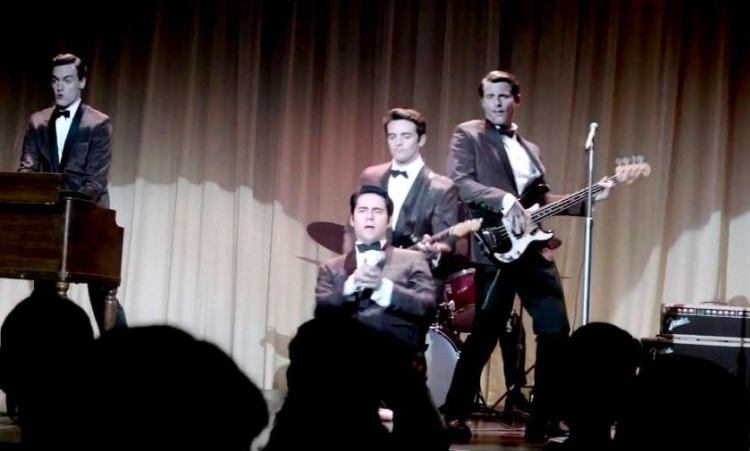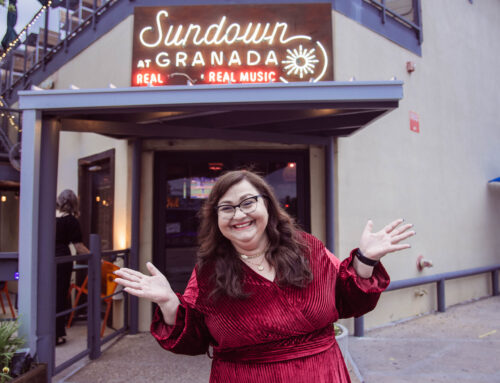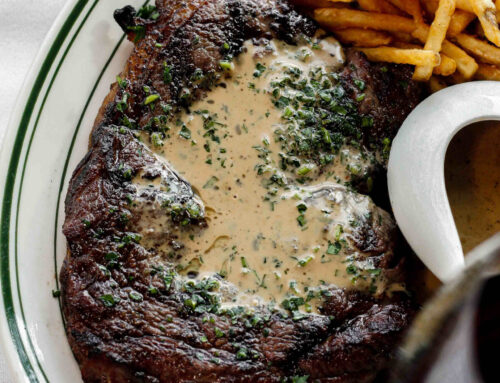 The break-out success of the jukebox musical Jersey Boys pretty much guaranteed the inevitable film adaptation; however, said spin-off not only fails to adequately compensate for the schmaltz, it exacerbates it with some truly bland, derivative film-making. It’s as if director Clint Eastwood set out to dramatize the most boring episode of VH1’s Behind the Music that he could find.
The break-out success of the jukebox musical Jersey Boys pretty much guaranteed the inevitable film adaptation; however, said spin-off not only fails to adequately compensate for the schmaltz, it exacerbates it with some truly bland, derivative film-making. It’s as if director Clint Eastwood set out to dramatize the most boring episode of VH1’s Behind the Music that he could find.
For the uninitiated, Jersey Boys tells the warts-and-all story of the rise and eventual dissolution of the singing group the Four Seasons, progenitors of such classic pop hits as “Walk Like a Man” “Big Girls Don’t”, and “Working My Way back to You”. Oddly, it does so less like the musical it’s based on and more like a Scorsese-esque coming=age-drama, opening in 1950s-era Belleville, New Jersey, where talented teenage singer Frankie Castelluccio (John Lloyd Young) and his friends are looking for a way — legit or not — to escape the neighborhood. As Tommy Puts it, the only ways to do so are by joining the army, getting famous, or getting “mobbed up”, and two of three ain’t bad.
From his friendship with guitarist/wannabe-wiseguy Tommy DeVito (Vincent Piazza) and a flirtation with petty crime, the Four Seasons are born. It’s a familiar showbiz arc, as the two recruit Nick Massi (Michael Lomenda) on bass, songwriter Bob Gaudio (Erich Bergen), and talent scout Joey Pesci (yep, the Joe Pesci, played with eerie panache by Joseph Russo). They eventually find an ally in gay record producer Bob Crewe (Mike Doyle, narrowly avoiding flamboyant stereotype). Cue the inevitable fast rise, easy money, easier dames, warring egos, resentment, domestic drama, poor decision-making, and selfish backstabbing that seem to kill off most bands in their prime.
And that’s the big weakness of Jersey Boys — we’ve seen this story before, and we’ve seen it in regards to more prominent bands and with gorier details. Tommy’s forced exile to Las Vegas while the boys pay off his $1 million in delinquent loans to the mob seems downright quaint after you’ve seen Val Kilmer trip, screw, and slur his way through The Doors.
It also doesn’t help that something so central and key to the story as the music itself doesn’t really get the attention it deserves until almost an hour in; and then much of it is a series of highlights blown through like a greatest hits melody.
The cast is a mixed bag as well, culled mostly from various productions of the stage version. Young has the singing hops, but as an actor barely registers as Valli, the star of the group and the ersatz linchpin of the story. He’s played as a cypher with a limited range whom the other characters play off of. Poor Lomenda is given little to do as Massi, haunting the background until given one good sequence in the scene that sends his character packing. Bergen is put to better use as Guadio, but as with most biopics, his character’s growth occurs in broad, abrupt strokes. Christopher Walken livens things up as mafioso Gyp DeCarlo, mainly by playing a slightly muted version of his standard screen persona.
Eastwood is definitely into the time and place, but he fails to paint a clear picture of what those early days of rock and roll were like. When it comes to the story, he takes the derivative approach of having the leads break the fourth wall and tell their sides of the story throughout the film, like a mash-up of Goodfellas and Rashomon. It’s intriguing at first, but not always well-balanced (we’ve almost forgotten about Massi by the time he pipes up) and eventually it wears thin, especially during the denouement at the group’s induction into the Rock and Roll Hall of Fame in 1990. (The old-age make-up used for this scene is shockingly bad.) At that point, we realize that although their music was great, there’s really nothing special about the backstage history of the Four Seasons that makes them worth a 134-minute cinematic autopsy.





